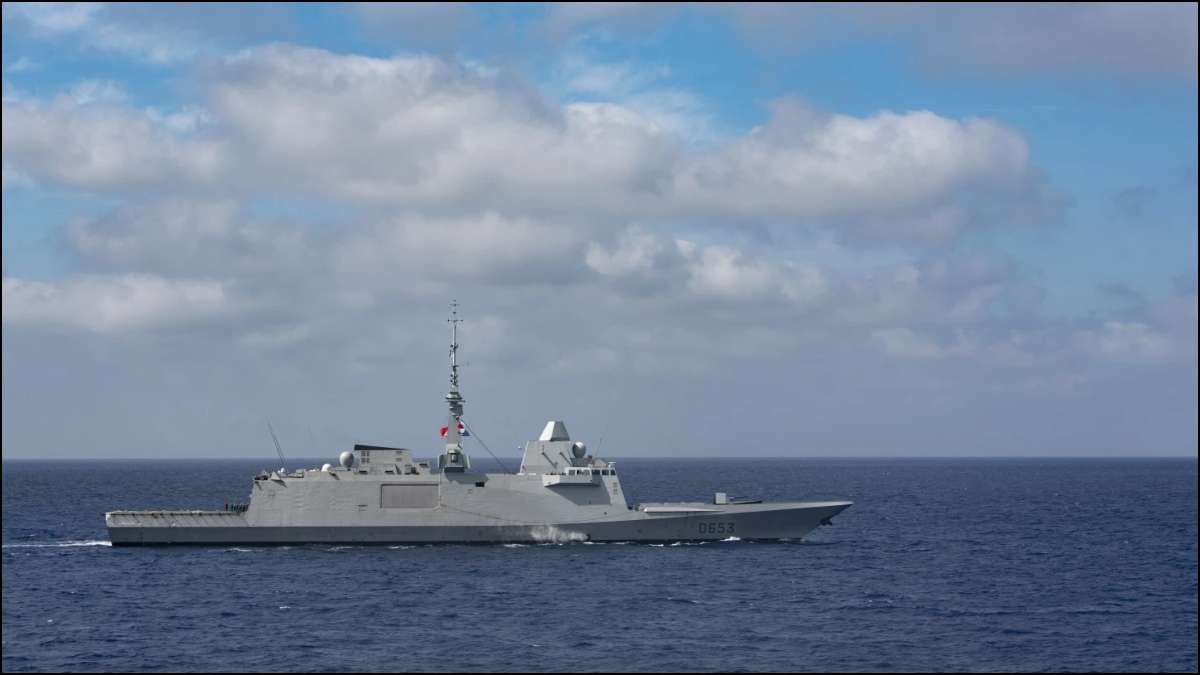
[ad_1]

The United States and a host of other countries have reportedly planned an international mission to protect commercial ships transiting the strategic Red Sea route from drone and missile attacks from the Houthi-controlled areas of Yemen, announced US Defence Secretary Lloyd Austin on Tuesday.
Amid the ongoing Israel-Hamas war, the Iran-backed Houthis have attacked several ships, which have damaged vessels and forced multiple shipping companies to order their ships on hold till the security situation is resolved. A drone and a missile attack struck a tanker near Yemen as recently as Monday, around the same time a cargo ship reported an explosive detonating near them in the water, according to the US military’s Central Command.
After convening a virtual ministerial meeting with representatives from 43 countries, Austin reaffirmed US commitment to freedom of navigation and the free flow of commerce in the region’s critical waterways and outlined the ways Houthi attacks are destabilising maritime security, according to a release by the US Department of Defence. He also noted that the attacks had already impacted the global economy and would continue to threaten commercial shipping if the international community did not come together to address the issue collectively.
“This is an international challenge that demands collective action. Therefore today I am announcing the establishment of Operation Prosperity Guardian, an important new multinational security initiative,” said the US Defence Secretary in a statement in Bahrain. He had also condemned the Houthi attacks on international shipping and global commerce as unprecedented and unacceptable.
10-15% of global trade through Red Sea
According to the Pentagon, the Secretary and senior DoD leadership have briefed participants that the Houthis had conducted over 100 one-way uncrewed aerial systems (UAS) and ballistic missile attacks, targeting or seizing 12 merchant vessels involving more than 35 different nations, while holding a 25-member crew hostage since November 19. They discussed how the attacks were a flagrant violation of international law and called on them to cease their actions.
Currently, 10-15% of global trade passes through the Red Sea, and international shipping companies are having to reroute through the Cape of Good Hope, adding weeks to the delivery of key goods and materials, including oil and gas. Austin urged participants to join the US-led and other international initiatives to restore security in the Red Sea to deter further Houthi aggression.
About 400 commercial vessels are transiting the southern Red Sea, an area roughly the size of Washington DC to Boston, at any given time, a senior military official told reporters who are traveling with Austin in the region.
What does the mission entail?
Under the new mission, the military ships will not necessarily escort a specific vessel, but will be positioned to provide umbrella protection to as many as possible at a given time, the official said on the condition of anonymity. This comes as shipping company Maersk announced that it will re-route ships that have been paused for days outside the Red Sea through the Cape of Good Hope.
The United Kingdom, Bahrain, Canada, France, Italy, Netherlands, Norway, Seychelles and Spain have joined, Austin said. Some of those countries will conduct joint patrols while others provide intelligence support in the southern Red Sea and the Gulf of Aden. China is notably absent in these negotiations, and its warships in the region have not responded to calls for assistance by commercial vessels.
The mission will be coordinated by the already existing Combined Task Force 153, which was set up in April 2022 to improve maritime security in the Red Sea, Bab el-Mandeb and the Gulf of Aden. While the task force has primarily provided a headquarters structure to date, the goal of the new mission is to provide ships and other assets to carry out the protection.
Two US warships — the USS Carney and the USS Mason — are currently moving through the Bab el-Mandeb Strait to help deter and respond to attacks from the Houthis. To this day, the US has not counterattacked against the Houthis or targeted their weapons or other sites.
Why are Houthis attacking ships?
Yemen’s Iran-aligned Houthis have been attacking vessels in Red Sea shipping lanes and firing drones and missiles at Israel since the start of the Israel-Hamas war in Gaza over two months ago, in a campaign they say aims to support the Palestinians.
The attacks further escalate a campaign by the Houthi rebels, who have claimed responsibility for a series of missile assaults in recent days that just missed shipping in the Red Sea and its strategic Bab el-Mandeb Strait.
Global shipping has increasingly been targeted as the Israel-Hamas war threatens to become a wider regional conflict — even during a brief pause in fighting during which Hamas exchanged hostages for Palestinian prisoners held by Israel. The collapse of the truce and the resumption of a punishing Israeli ground offensive and airstrikes on Gaza have raised the risk of more sea attacks.
In November, Houthis seized a vehicle transport ship linked to Israel in the Red Sea off Yemen. The rebels still hold the vessel near the port city of Hodeida. Separately, a container ship owned by an Israeli billionaire came under attack by a suspected Iranian drone in the Indian Ocean.
(with inputs from agencies)
ALSO READ | Projectile fired from Houthi-controlled Yemen hits German-owned ship in Red Sea, causes fire
[ad_2]
Source link